‘The Medical Certificate is compulsory. No certificate, no race.’ This is not what you want to hear the day before a marathon, after you’ve trained many arduous kilometres, taken 3 flights across 16 timezones at great expense – and you don’t have a medical certificate. My friend Erik and I briefly conferred – neither of us remembered getting the email outlining this requirement. It wasn’t beyond the realms of possibility that I had overlooked an important communication – signing up to run the Baikal Ice Marathon only 11 weeks before the event meant my training and preparation were fairly haphazard – but searching my inbox, I found nothing. Which was a problem, because thanks to the Russian love of bureaucracy, it’s a legal requirement for anyone attempting to run further than 21km to be certified medically fit to do so.
‘Well I’m nearly a doctor,’ piped up Ryan the Belgian PhD student seated in front of me, ‘but in Particle Physics.’ By a stroke of good fortune, his bus neighbour Daniel was an actual medical doctor. ‘Sure, I’ll sign anything you need. Well…I mean I’m not going to just sign it. I’ll need 1 or 2 minutes to ask some questions to be sure.’ And this is how, in an unexpected turn of events, I came to pay the bedroom of two pyjamaed near-strangers, Daniel and Dominik the Swiss doctoring duo, a visit the night before the race. After an adequate pulse reading, and ascertaining that I had no history of dizzy spells during exercise (I never push myself hard enough), I was declared a picture of health. In the interests of full disclosure with my new doctor, I also shared my concerns around a dying toenail that was clinging on for dear life, but he said he didn’t care about that, it would definitely fall off, and I would just have to live with it.
With my fitness officially certified by a Zurich-based urologist, I was permitted to take my place on the start line of the 13th Baikal Ice Marathon with 201 comrades from over 20 different countries. The notoriously brutal Siberian climate smiled fondly on us on race day – a few days of snow provided some purchase underfoot, and a temperature of ‘only’ around -7c. Compared to the black ice, blizzards and -25c conditions of some previous events, we were relatively fortunate.
Although the weather conditions were good, the run was far from easy. The route makes a ‘dogleg’ line shore-to-shore across the frozen white abyss of Lake Baikal:
![IMG_9723[1]](https://pedalthenpaddledotcom.files.wordpress.com/2017/03/img_97231.png?w=1000)
This Siberian lake is the largest body of fresh water on the planet, and in parts is over 1600m deep. In winter, it freezes to an ice thickness of 1.5m, but as the lake ‘breathes,’ it cracks, and so in places the route takes runners past, and alarmingly, over, some of these fractures and shards of ice.
Psychologically it’s a tough race. The scenery to either side does not change – flat and white as far as the eye can see, save for the odd hovercraft or snowmobile patrol zipping past. Looking behind, the south shore mountains become smaller, while ahead, the mountains on the north shore are barely visible, but they inch ever-so slightly closer with each step of the 42km, as does the promise of a warm shower and comfortable hotel bed. Intermittently, an aid station would appear on the horizon, but given how hard it was to judge distances, this often gave false hope, as you spent the next few km trying to actually reach it!
I ran the first half with two guys I had met earlier that week during the orientation package. Guido, Michael and I made good time to 21km, mainly due to an artificial panic. We stopped for a couple of minutes to grab a drink and some food at the first aid station, which we believed to be at 7km. As we were leaving, Guido checked his watch and exclaimed that we’d already been running for 58 minutes. After some quick maths, it seemed that even at this early stage, we were somehow in danger of not making the 6 hour cutoff for the marathon. We upped the pace in panic. However, in less than 10 minutes, to our confusion, we reached the 10km marker and realised that the aid station must have been more like the 9km mark. Despite this, we kept up a good pace to half way, where Michael, who had entered the half marathon, bowed out, and Guido and I were staring down the barrel of another 21km.
At this point, my inadequate training was beginning to show. Guido was very gentlemanly, but I knew that I was holding him back, so encouraged him to go ahead and get a better time. ‘Save yourself!’ I called after him dramatically. It was significantly harder alone, and as I’d slowed by an extra minute per kilometre, it felt significantly colder too. But anyway, I plodded on, chatting to people I met en route, including a hilarious German running blogger dressed as a fairy. 5km from the end, I was able to tell myself ‘it’s just a parkrun now!’ and pretended I was a tail runner, just taking it easy at the back. And lo and behold, eventually the shore of the lake came into view. I mean, it still took ages to get there, but it felt great to arrive! Sadly, a man only a couple of years older than me actually died on the course this year, so despite the pain in my legs, things were certainly put into perspective.
Although the main event was the marathon, it was a really great trip in many other respects too. Erik and I spent the first few days in Moscow. I first visited around 14 years ago, when one summer I decided that rather than ‘Camp America’ I would instead do ‘CRUSSIA’ – spending a summer on a Russian summer camp teaching English. This time around, with a much greater distance between the old Soviet regime and the present day, Moscow felt less rundown and a lot more like a modern European capital – much more commercialised with nice cars, westernised cafes, malls and restaurants. I spent most of my time indulging my love of Soviet history with various museum visits and tours, and even managed to get a parkrun in there!
Something else I noticed this time was that the people seem much more open, friendly and willing to chat. This is probably a lot to do with English being introduced onto the school curriculum, but they also much more openly discuss Soviet times and even current world politics. Although as a tourist, you don’t get much of a sense of it, there are still a few indicators that society has not fully ‘opened’ – for instance, a number of websites, including LinkedIn, are blocked.
When I was researching my CRUSSIA trip, I read about Lake Baikal and have wanted to visit ever since. Ideally, I still want to do the Trans-Siberian rail journey, but I think that one will need to wait until I’m not on a 15-day Canadian annual leave allowance! So I made do by playing on the tracks of the railway instead; and aside from this, the opportunity to spend a few days in the Siberian towns of Irkutsk, Baikalsk and Listvyanka, and of course run across the lake, has been incredible.
Irkutsk, rather generously considered ‘The Paris of Siberia’, is 5 hours ahead of Moscow, and still not even anywhere near the far side of Russia.
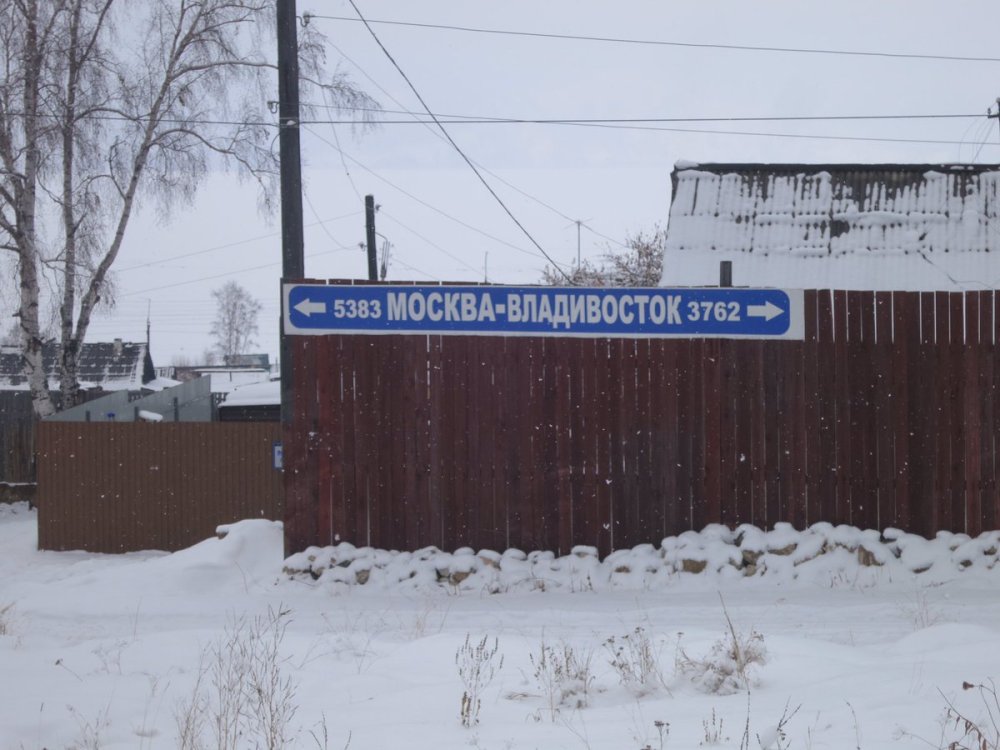
It’s such a vast country! Being so remote it has a really unique feel. Despite Russia driving on the right, most of the cars in Siberia have the steering wheel on the right – this is because it’s much easier for them to obtain second-hand cars from Japan than elsewhere in Russia. Baikal fish is considered a delicacy, so you’re likely to come across a Babushka peddling smoked fish. It’s the norm for almost every single restaurant, museum, bar and other places to have cloakrooms – I guess this is because of the sheer volume of layers that living in such a harsh climate necessitates.
Although Siberia too has modernised, the way of life here is still fairly traditional with beliefs that haven’t quite caught up. I was a victim of one such belief when I tried to order water in a restaurant. I was thirsty, and although I wasn’t trying to be cheap or rule out having a ‘proper’ drink later on, the proprietor put up a very fierce resistance to my order. ‘Please!’ I begged, ‘I’m just so thirsty! I promise to order a beer later!’. Eventually, he relented, but only slightly, and delivered a glass of boiling water and a bucket of ice. Someone later explained to me that in Siberia they believe that you should not drink cold water in winter because of the climate, and also because it will curdle with their traditional dumplings and other fatty foods (and according to Michael, who lives in Russia, they sometimes claim that drinking cold water can kill children!).
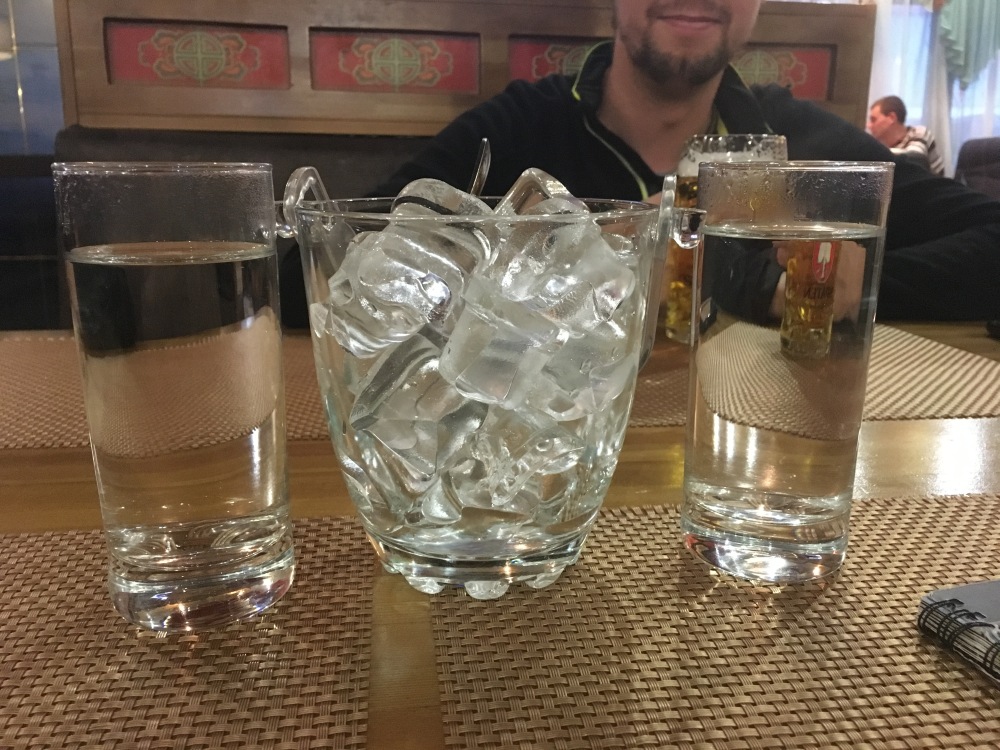
So there you have it; the Ice Marathon in quite a large nutshell (perhaps a coconut). And in case you were wondering – my concerns were well-founded, and the toenail didn’t survive.


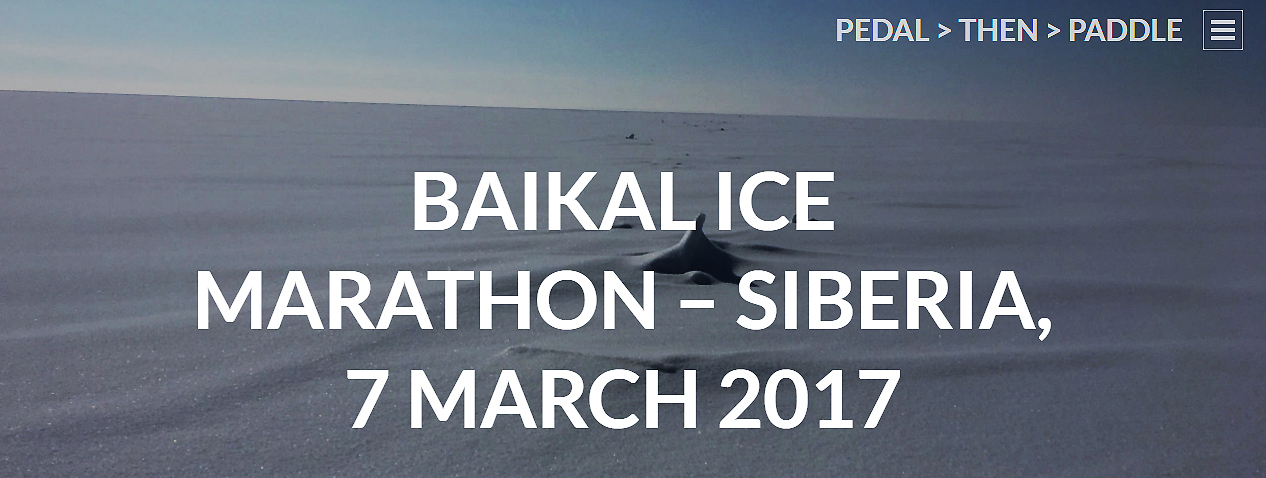
![IMG_9647[1] IMG_9647[1]](https://pedalthenpaddledotcom.files.wordpress.com/2017/03/img_96471.jpg?w=663&h=497)
![IMG_9638[1] IMG_9638[1]](https://pedalthenpaddledotcom.files.wordpress.com/2017/03/img_96381.jpg?w=329&h=247)
![IMG_9646[1] IMG_9646[1]](https://pedalthenpaddledotcom.files.wordpress.com/2017/03/img_96461.jpg?w=329&h=246)

![IMG_9664[1] IMG_9664[1]](https://pedalthenpaddledotcom.files.wordpress.com/2017/03/img_96641.jpg?w=663&h=497)
![IMG_9665[1] IMG_9665[1]](https://pedalthenpaddledotcom.files.wordpress.com/2017/03/img_96651.jpg?w=329&h=247)
![IMG_9601[1] IMG_9601[1]](https://pedalthenpaddledotcom.files.wordpress.com/2017/03/img_96011.jpg?w=329&h=246)




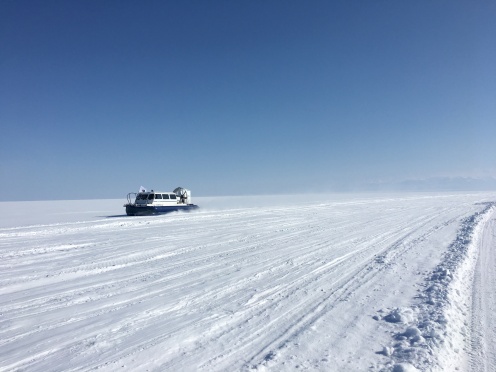








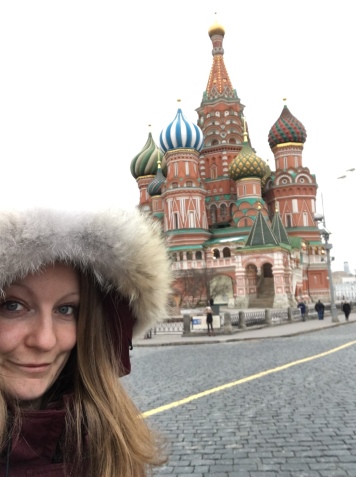







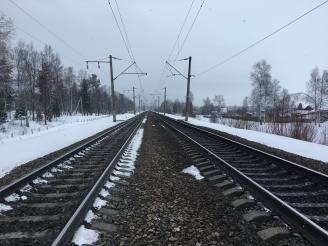







Nothing short of Brilliant. Have come to rely on you Bex, not just for your ability to shock by pushing your body to its limits, but also for a regular dose of world history/ culture. Thanks. Xx
Liked by 1 person
Thank you very much, Mrs Carr. You can come with me next time? xx
Like
My Shero and travel guide all in one!! Brilliant read even though you are crazy! Well done Mabel X
Liked by 1 person
…said the pot to the kettle, Nic?! xx